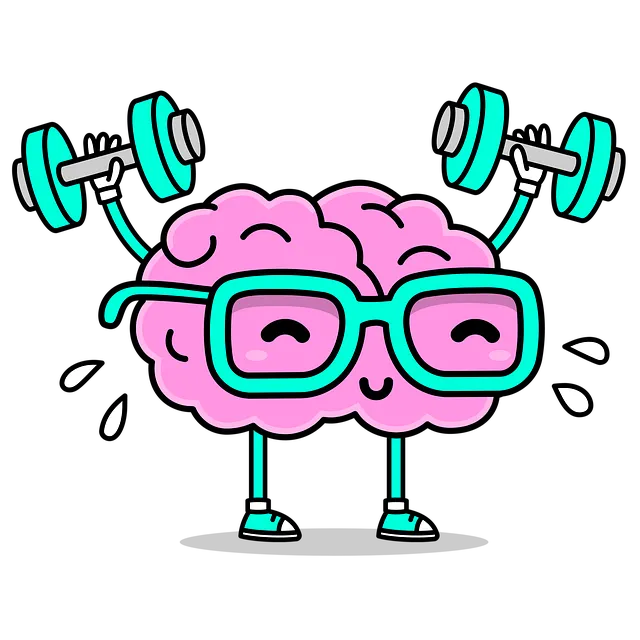The Kaiser Permanente mental health facility in Northglenn is a hub for addressing growing mental wellness concerns, offering evidence-based coaching programs to empower individuals with stress management and anxiety relief tools. These programs, integrating cognitive behavioral therapy and mindfulness, focus on personal growth, resilience, and emotional healing. By tailoring interventions and addressing trauma, these initiatives foster holistic well-being, revolutionizing mental health care within the community. Strategic implementation involves aligning with patient care models, evaluating program effectiveness, and staying responsive to evolving needs through policy analysis and advocacy.
Mental wellness coaching programs have emerged as vital tools in addressing the growing demand for accessible, personalized support. This article explores the development and impact of such initiatives, focusing on Kaiser Permanente’s Northglenn Mental Health Facility as a case study. We’ll delve into understanding the need, key components for effectiveness, program design strategies, and evaluation methods. By examining these aspects, we aim to highlight how comprehensive mental wellness coaching can transform lives, especially within community-based healthcare settings like Kaiser Permanente.
- Understanding the Need for Mental Wellness Coaching Programs
- The Role of Kaiser Permanente's Northglenn Mental Health Facility
- Key Components of Effective Mental Wellness Coaching
- Designing a Comprehensive Coaching Program for Optimal Impact
- Implementing and Evaluating the Success of Mental Wellness Coaching Initiatives
Understanding the Need for Mental Wellness Coaching Programs

In today’s fast-paced world, mental wellness is an increasingly important aspect of overall health and well-being. This need has been recognized by many organizations, including Kaiser Permanente, which operates a mental health facility in Northglenn. The rise in stress, anxiety, and other mental health challenges among individuals of all ages highlights the necessity for accessible and effective support systems. Mental wellness coaching programs play a pivotal role in addressing these growing concerns.
These programs are designed to empower individuals with coping skills development, emotional regulation strategies, and self-esteem improvement techniques. By fostering personal growth and resilience, they help people navigate life’s challenges more effectively. The Kaiser Permanente mental health facility in Northglenn, for instance, has likely integrated such coaching initiatives to cater to the diverse needs of its community, ensuring that mental wellness is not just treated but thrived upon.
The Role of Kaiser Permanente's Northglenn Mental Health Facility

Kaiser Permanente’s Northglenn Mental Health Facility plays a pivotal role in the development and accessibility of mental wellness coaching programs. This facility acts as a hub for comprehensive mental health services, offering a range of resources tailored to meet diverse individual needs. Through its specialized programs, Kaiser Permanente addresses various aspects of mental wellness, including anxiety relief and stress management workshops designed to empower individuals with effective coping strategies.
The organization’s commitment to inner strength development is evident in its approach, ensuring that clients not only manage their symptoms but also cultivate long-lasting resilience. By providing a supportive environment and evidence-based practices, the Northglenn facility contributes significantly to improving mental health outcomes for the community it serves, making Kaiser Permanente a leading force in promoting holistic well-being.
Key Components of Effective Mental Wellness Coaching

Effective mental wellness coaching programs are crafted with a keen understanding of individual needs and a holistic approach, mirroring the comprehensive services offered by facilities like Kaiser Permanente’s mental health facility in Northglenn. Key components include tailored goal-setting, where coaches work closely with clients to establish realistic objectives aligned with their unique circumstances. This personalized aspect ensures that each journey towards emotional well-being is uniquely theirs.
Additionally, these programs emphasize the integration of various therapeutic techniques, such as cognitive behavioral therapy and mindfulness practices, to facilitate healthy coping mechanisms and emotional healing processes. Trauma support services, a vital element in many cases, are incorporated to address past traumas and their impact on mental health. The overall goal is to empower individuals with the tools and resilience needed to navigate life’s challenges effectively.
Designing a Comprehensive Coaching Program for Optimal Impact

When designing a comprehensive mental wellness coaching program, especially for facilities like Kaiser Permanente’s Northglenn mental health branch, it’s crucial to consider a multifaceted approach. The program should integrate various therapeutic techniques, such as cognitive-behavioral therapy principles, mindfulness practices, and evidence-based stress reduction strategies. This holistic view ensures that coaches can address not only the symptoms but also the underlying causes of mental health issues, fostering genuine and lasting improvements in their clients’ well-being.
Effective coaching involves tailoring interventions to individual needs. Incorporating regular Mental Wellness Journaling Exercises can provide clients with a safe space to reflect on their emotions and progress. Additionally, including a Risk Assessment for Mental Health Professionals helps identify potential risks early on, ensuring the safety of both coaches and clients. By balancing structured guidance and flexible personalization, such a program aims to deliver optimal impact, much like Kaiser Permanente’s commitment to comprehensive mental health care.
Implementing and Evaluating the Success of Mental Wellness Coaching Initiatives

Implementing mental wellness coaching initiatives within established healthcare facilities, such as the Kaiser Permanente mental health facility in Northglenn, requires careful planning and strategic evaluation. Success lies in aligning coaching programs with existing patient care models, ensuring they are accessible and integrated seamlessly into routine treatment plans. The initial step involves assessing the specific needs of the target population, whether it’s veterans, adolescents, or individuals struggling with chronic stress.
Evaluating these programs is crucial to gauge their effectiveness. Metrics can include patient satisfaction rates, improvements in coping skills development, and reductions in symptoms of anxiety or depression. Over time, regular Mental Health Policy Analysis and Advocacy can ensure these initiatives remain evidence-based and responsive to evolving community needs, fostering an environment that prioritizes Emotional Healing Processes for all individuals served.
Mental wellness coaching programs, such as those offered by Kaiser Permanente’s Northglenn Mental Health Facility, play a pivotal role in enhancing overall well-being. By integrating key components like personalized goal setting, evidence-based techniques, and ongoing support, these programs can significantly improve mental health outcomes. Effective design, implementation, and evaluation ensure that coaching initiatives meet the unique needs of individuals seeking support. This comprehensive approach not only benefits participants but also contributes to a more resilient and healthy community, underscoring the growing importance of mental wellness coaching in our modern society.






